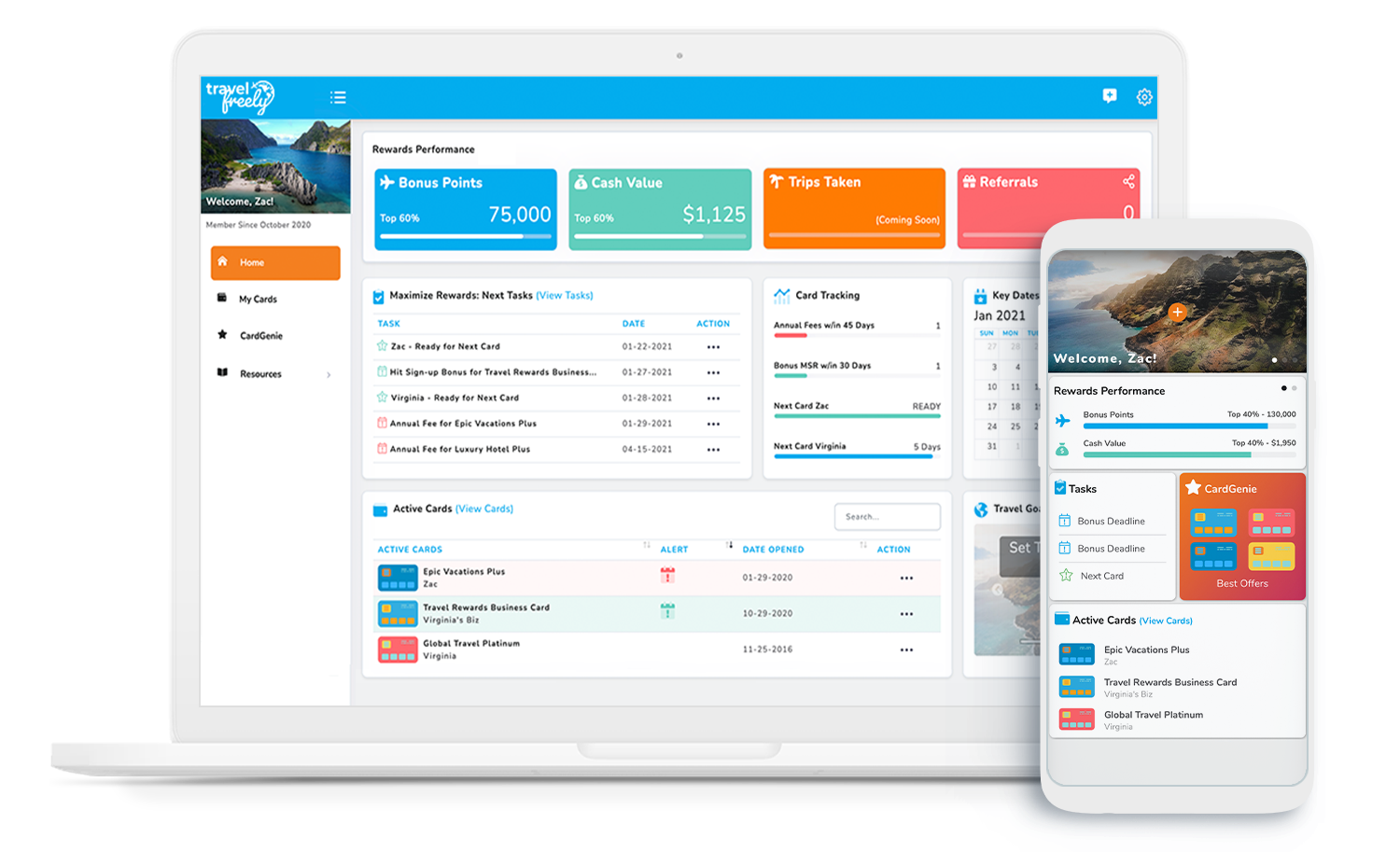At Travel Freely, we are all about a lifetime of free travel. That means maximizing your sign-up bonuses. So there’s a strategic decision to be made when your annual fee is coming up. We believe there’s a best strategy for these decisions in order to maximize your rewards and save on fees. Sometimes it makes sense to pay the fee, but most of the time we recommend changing your card to a no annual fee card or canceling.
Need a number? Jump to customer service numbers.
You have 3 options:
1) Keep your card
2) Change your card
3) Cancel your card
1. Keep the card and pay the annual fee. Some cards are just worth keeping. For example, the Chase Ultimate Rewards points that come with the Chase Sapphire Preferred card have some great flexibility. This card is usually my all-the-time card when I’m not hitting a bonus. I can utilize a range of redemption options with it.
Another reason to keep the card is that you find the perks outweigh the cost. Maybe you travel on United all the time and you enjoy getting free checked bags, so you’re willing to pay the annual fee on your United card each year.
2. Change the card to avoid the fee. Changing (or “downgrading”) is always the first option if you don’t want to pay the annual fee. Not all cards can be downgraded, but most can. To downgrade a card means that you are changing your card to a $0 annual fee card, or doing a “product change.” This change is so good because it does not close your credit history for that account. It keeps your credit history tied to the original card, which is great.
Note: Doing a product change almost never counts as a “new account.” Some people have reported that Citi has done this recently. It’s always a good idea to double check with the bank to make sure a credit inquiry will not happen and that a new account will not be created.
Another big benefit to downgrading, besides avoiding an annual fee and keeping good credit history going, is that it works best for a lifetime of free travel. Why? Because you can become eligible and re-apply for most of the big rewards cards you’ve already had. That is, you can get the same card every couple of years. So if you downgrade the card, you will no longer officially hold that card and you will be ready to become eligible for another big bonus down the road.
Note: You normally have 30 days from when the fee hits your account to call in and get the fee refunded if you choose to downgrade or cancel. The exact policy for being able to do this and the time frame varies by bank, so check with the bank to be sure.
3. Cancel the card to avoid the fee. If you cannot make a change (i.e. downgrade) and are no longer getting enough value out of the perks of the card to justify paying the annual fee, it’s a good idea to cancel, but only as long as you have some long-standing $0 annual fee cards as the backbone of your credit score. Some people are concerned about their credit score. On average, if you have several cards, canceling a card will only temporarily drop your score by a few points.
The main reasons I would keep a card would be:

You have 3 options with an upcoming annual fee: Keep, Change, or Cancel.
How to change or cancel your card: It’s simple. Call the number on the back of your card. Let them know you’d like to downgrade (or cancel the card) because you don’t want to pay your annual fee. They may try to talk you into keeping the annual fee by offering some bonus points or a statement credit. If you feel like it’s worth doing, go for it. But most of the time, it’s better to continue as planned.
When to downgrade or cancel: Make these decisions about a month before the annual fee is due. (If you’re using Travel Freely’s automated reminders, you’ll get an email 45 days and 10 days before the fee is due.)
The main reasons to make a change 1 month before:
1) You have time to pay off any balance for that month and transfer any points that may still be attached to the account.
2) You don’t have to worry about the annual fee hitting your statement and asking for it to be removed.
Note about American Express: Doctor of Credit has reported (on 4/10/19) that canceling an Amex card within 12 months may lead to them clawing back your initial welcome bonus! To avoid this, let the annual fee hit your statement. Then, you have 30 days to cancel and the annual fee will be refunded.

Most people don’t know about the third option of downgrading (changing) your card.
2 words of caution:
1) Be sure you know if you’ll keep your points/miles.
Bank rewards cards: If you have a bank card (like a Chase Sapphire, Amex Gold, or Citi ThankYou), you will most likely lose your rewards when you cancel or downgrade your card. This can be reason enough to pay the annual fee and keep it. But, if you have another account or a family member with the same kind of account, you can transfer or merge those points to the other account, then cancel the card. If you have a lot of points and still want to cancel even though you don’t have a way to transfer points, you can always convert remaining points to cash or gift cards before canceling.
Co-branded cards: If you have a co-branded card (like an airlines or hotel card – e.g. Chase Southwest, Amex Marriott, Chase United, etc.), those points are tied to the loyalty program and are already out of your credit card account. So, you can cancel hotel or airline cards and never lose your points. Note: Depending on the loyalty program, some points may expire after a certain period of time.
2) Don’t cancel a card if you’re in the process of getting a loan.
If you are in the process of closing on a mortgage or car loan, you may want to wait so that there are no changes to your credit. While canceling a card may only temporarily knock you for a few points, some lenders don’t want to see any changes while they are processing your loan.
Want to put this process on auto-pilot? You can. Travel Freely has the tools to notify you at the right time to make decisions on annual fees. In addition to annual fee reminders, you’ll get reminders for signup bonus deadlines, when you’re eligible to apply for new cards, and when you dip below 5/24 (for those who know about the 5/24 rule). Set it, and forget it with Travel Freely.
Want to maximize your miles? Try Travel Freely Today. It’s FREE.
Customer Service Numbers:
 |
Phone: 1-800-528-4800 |
 |
Phone: 1-800-732-9194 |
 |
Phone: 1-866-928-8598 |
 |
Phone: 1-800-955-7070 |
 |
Phone: 1-800-432-3117 |
 |
Phone: 1-800-347-4934 |
 |
Phone: 1-800-347-2683 |
 |
Phone: 1-888-852-5786 |
 |
Phone: 1-800-432-3117 |




